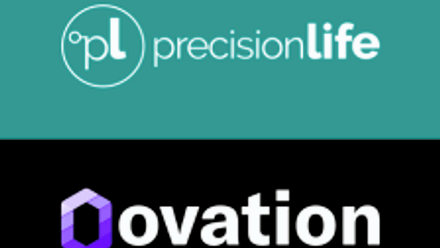Transforming biotechnology manufacturing through advanced automation

In this latest white paper, Dave Cooper, Life Science Projects at Emerson, explores how forward-thinking biotech companies can meet the growing demand for personalised treatments by reimagining their manufacturing strategies - leveraging digital tools, automation, and process innovation to drive scalability, reliability, and speed.
The biotechnology industry stands at an unprecedented crossroads, where groundbreaking cell and gene therapies promise to revolutionise medicine by offering curative potential for previously untreatable genetic disorders and various cancers. However, as the global biotech market expands roughly 15% to a projected $546.0 billion by 2025, manufacturers face mounting pressures that threaten to constrain this remarkable growth trajectory. The complexity of developing advanced therapies, particularly autologous and personalised therapies, has created a manufacturing paradigm that demands fundamentally different approaches from traditional pharmaceutical production. Where conventional drugs can serve thousands of patients from a single batch, advanced therapies require new manufacturing processes that continue to maintain the highest quality standards while operating under severe time constraints and cost pressures.
The manufacturing challenges facing biotechnology companies today are both multifaceted and acute, with industry leaders identifying rising costs as the primary obstacle to commercialisation. Unlike traditional pharmaceutical manufacturing that relies on scaling-up batch sizes, advanced therapy manufacture necessitates a scale-out approach involving multiple concurrent small batches, each presenting unique risks of contamination, process variability, and regulatory compliance issues. Manual processes, which still dominate much of this industry’s manufacturing, introduce critical inefficiencies and human error rates that can cascade into costly rework, production delays, and regulatory setbacks. The FDA reports that over 70% of manufacturing deviations in the pharmaceutical industry stem from human error, while the inherent complexity of these processes—from viral vector production bottlenecks to maintaining cell viability throughout extended manufacturing timelines—compounds these challenges. For personalised medicine manufacturers, the stakes are even higher, as they must coordinate thousands of patient-specific batches simultaneously while ensuring perfect traceability from ‘vein to vein’.
Automation has emerged as the critical enabler for overcoming these manufacturing barriers, offering biotech and advanced therapy medicinal products companies a pathway to achieve the efficiency, consistency, and scalability required for commercial success. Advanced automation platforms can reduce labour costs by 15-30% (McKinsey & Company) while dramatically decreasing defect rates. This enables manufacturers to optimise the use of expensive reagents—such as viral vectors that can account for up to 40% of production costs—and achieve more predictable outcomes. Modern integrated automation systems, incorporating real-time monitoring, predictive analytics and digital workflow management, address the fundamental challenge of managing hundreds of concurrent batches while maintaining regulatory compliance and product quality. By automating routine processes and implementing sophisticated data management systems, manufacturers can redirect their skilled workforce toward higher-value activities such as process optimisation and innovation. Ultimately, this reduces time-to-market and improves patient access to life-saving therapies.
As the industry transitions toward Industry 4.0 principles, automation platforms that seamlessly integrate hardware and software solutions are becoming essential infrastructure for companies seeking to transform their manufacturing operations and achieve a sustainable competitive advantage.
To learn more, read our white paper entitled ‘Digital Excellence for Advanced Therapies’.





